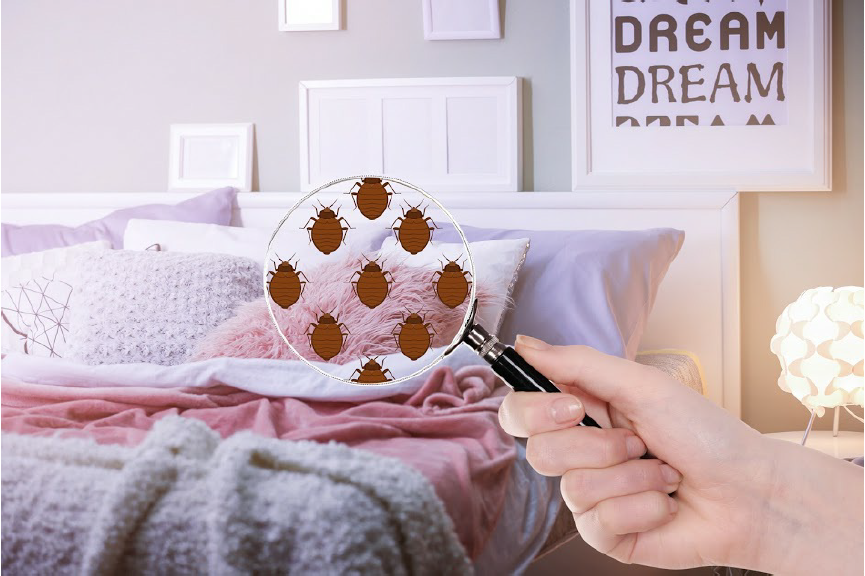4 Signs of Bedbugs in Your Home
Admin • October 13, 2021

Bedbugs usually hide in household furniture and feed on animal or human blood. Although they do not carry any diseases, bedbugs can be a practical nightmare and can cause physical discomfort due to the itchy red welts their bites leave behind.
Though tiny, bedbugs are a problem for homeowners because they are hard to spot and even harder to get rid of. Additionally, since they reproduce quickly, it might take several treatments to fully eliminate bedbugs in your home.
If you are nervous about the possibility of bedbugs in your home, you need to know what infestation signs to look for. Here are the top warning signs of bedbugs in your home.
1. You Notice Itchy Red Bite Marks on Your Body
Almost all bedbug bites will produce some form of red itchy spots, usually on the arms, legs, and shoulders. While other insects will leave uneven bite marks, bedbugs tend to leave straight, zigzag, or small clusters of red bite marks.
The size of the bite marks will vary from person to person, based on how your skin reacts to the anticoagulant that bedbugs produce as they pierce the skin. Some people will have a higher sensitivity to the bites with increased or decreased intensity as the number of bites increase.
The bites can be quite irritating, and continuous scratching can lead to a bacterial infection or cause further swelling or bleeding.
2. You Notice Blood Stains on Your Sheets
Bedbugs can be difficult to spot due to their exceptionally tiny size. However, they are not clever enough to hide evidence of their blood thirst. The bedbug blood stains are mostly small, dark, and appear either round or smeared.
Mysterious dried or fresh specks of blood on your bed sheets indicate bedbugs are active and feeding. Blood spots appear due to the blood that escapes your skin as the bedbug feeds or as you unconsciously squash the tiny bugs as you toss and turn in bed.
3. You Notice an Unexplained Musty Odor
When it comes to your sense of smell, questionable scents in your home can warn you of potential danger, and this is often the case with a bedbug infestation. Bedbugs release odors known as alarm pheromones
to communicate with their colony.
When disturbed, you may start noticing a sweet odor that smells like coriander or a musty odor that smells like moldy shoes or a wet towel. That said, not all people smell bedbugs similarly because the scent will vary with the level of infestation, droppings, and personal olfactory sense.
If you smell something strong and unpleasant in an otherwise clean home, you should take a closer look.
4. You Notice Fecal Spots Around Your Home
Bedbugs can notoriously seem invisible, but luckily, they leave signs of infestation in the form of fecal spots.
Bedbugs can leave their fecal matter everywhere, from sheets, cushions, pillows, baseboards, along seams of the mattress, or inside walls. You can easily spot the fecal or shed skin matter where the bedbugs hide in clusters.
The fecal matter is dark, smooth to the touch, and will easily smear because it's a product of digested blood. Confusing bedbug feces with dirt or ink is easy, but if you suspect an infestation, you will notice a recurrence of the dark spots after cleaning your home.
Whether bedbugs have invaded your furniture, electronics, or luggage, we will carefully and thoroughly inspect all your belongings. When treating a bedbug infestation, we understand that there is no time to hesitate. Give American Pest Professionals
a call today for the most effective way of keeping your home
bedbug-free.









